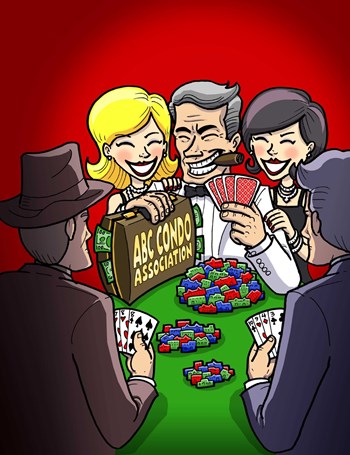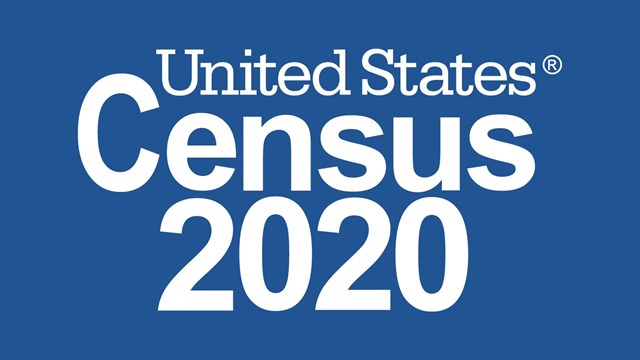
Given recent headlines, condominium, cooperative and homeowner associations could be forgiven for thinking they need to put an armed guard and razor wire around the petty cash box. A wave of fraud appears to be hitting properties from New York to Florida and beyond.
In New York last December, a Rockland County treasurer pleaded guilty to taking more than $130,000 from an association and a managing agent last August was ordered to pay more than $628,201 to a Manhattan co-op he allegedly defrauded. In March, a New Jersey condo association president pleaded guilty to embezzling more than $50,000 from her association, and another business manager in Florida allegedly stole more than $856,000 from five area homeowners associations. Perhaps the largest case of fraud reported in recent months is that of a New York managing agent, who allegedly siphoned off $1.3 million in property taxes from six co-ops.
“It isn’t just condo boards and associations,” says Michael Kessler, a certified fraud accountant and owner of Kessler International in New York. “It’s all over the country—the amount of fraud that we see is just astronomical.” If it’s any comfort, some of Kessler’s cases make the co-op and HOA thefts look like chump change. His firm recently broke open a Ponzi scheme worth $463 million. But “condos and co-ops are up there,” he says.
That leaves associations and boards having to grapple with an often devastating situation in this struggling economy. Fraud can decimate a small condominium’s finances and leave boards of all sizes feeling violated and distrustful. But how can an association tell if there’s a problem without feeling like they’re suspecting everyone in their employ?
Red Flags
Take three hypothetical scenarios and see if you can spot the most likely thief: An HOA employee has been heading for Mohegan Sun on weekends. The treasurer just traded in his 10-year-old Pontiac Sunfire for an Audi TT. And then there’s the dedicated bookkeeper who’s been with the company 20 years and never takes a vacation.
Actually, according to certified fraud examiners, all three scenarios are potential red flags. “The most common phrase I hear is: ‘I can’t believe it’s old Bob. He’s been with us forever. He takes in stray kittens,’ ” says Allan Bachman, education manager for the Certified Fraud Examiners in Austin, Texas. “Meanwhile, he’s been skimming from the company forever.”
While a spiraling drug- or substance-abuse problem might be easy to spot, there are usually other indications that an employee is stealing. “They aren’t putting [the money] in a coffee can and burying it in the backyard,” says Bachman. Big-ticket purchases—expensive clothes, luxury vacations, or new cars (any item that seems just a little beyond one's means)—might be cause for concern. Employees who are reluctant to let others’ see their work or to be audited are another possible red flag, according to Bachman.
Often however, it's not a suspiciously lavish vacation or troubling, erratic behavior that will raise the alarm among conscientious administrators, says Gary Wilkin of Mahwah-based Wilkin Management. "Typically, the signs of fraud are things that just don't match up. If there are overruns, or all of sudden you have a contract that's worth $10,000, and the bill comes in and it's $15,000 and somebody is justifying the extra five thousand dollars. Invoices versus what the proposal stated—those are the blatant signals."
Why Do They Do It?
Difficult economic times may produce more desperation in individuals but part of the recent increase in fraud cases may also stem from the fact that businesses are much more watchful of their money in recessionary times such as these than during boom times—and so some long-running instances of fraud are finally being brought to light as HOAs and other organizations take a hard look at their books. (Bernie Madoff, for example, had a 30-year run.)
“When the economy’s bad, that’s when businesses start looking for all their pennies,” says Kessler, who cites cases he’s working on right now that go back a decade. “Fraud doesn’t get recognized until somebody needs the money.”
“We can assume fairly logically that the economy would have direct effect on fraud,” says Bachman. “But I can make a case that an up economy would lead to more fraud because there’s more money to steal.” He believes that both factors—more temptation on the part of employees and more scrutiny on the part of employers—are contributing to the rise in reported cases.
Just about any employee has an opportunity to steal, whether it’s a maintenance worker who’s ordering extra supplies and selling them on the side or an office manager who uses her employee credit card to gas up her own car. Stephen Beer, a partner with the accounting firm Czarnowski & Beer, which serves both New Jersey and New York, says that "The most common [scheme] is either a kickback, or some kind of scheme where a preferred vendor gets all the jobs. The misappropriation of cash receipts is probably the second most common. Another common one is doing inadequate work for the same price, so the HOA is paying for a Cadillac but only getting a Yugo, he says. Another common practice is fraudulent use of credit cards.
Protect Yourself
Recognizing signs of potential fraud is great, but protecting yourself and your community in the first place is even better. That process starts with using reputable professionals and putting a series of checks and balances in place to encourage transparency and minimize temptation.
According to Jennifer A. Loheac, an attorney with the Woodbridge-based law firm Greenbaum Rowe Smith & Davis LLP, “There are many professional and reputable management firms in the state of New Jersey. These management firms participate in the Community Associations Institute (CAI) locally and nationally. They continually engage in education and credentialing for their managers and are an all-around a credit to the hundreds of communities they serve."
Among safeguards that condominiums could institute: Have two people sign off on checks over a certain amount. Don’t let the same person who pays the bills sign the checks and reconcile the bank statements. Don’t use a signing stamp, a handy little device that saves time for both a board president and for any potentially dishonest employee. Keep employee credit-card balances low and check statements regularly. Don’t just give the treasurer reports—have him look at the whole package, from canceled checks and invoices to cash receipts. Even if everything seems fine, a regular audit of the books is vital, says Bachman. "And don’t explain away small bookkeeping mistakes by shrugging and saying, 'Oh, that account’s never right.' In the early stages, fraud and stupidity look a lot alike."
All the professionals interviewed for this article agree that oversight and transparency are the cornerstone of any HOA's fraud defense strategy. Tempting as it may be to just let one person handle a given project or account, it's not smart business. "Let's say one board member wants to oversee a project," says Wilkin. "They say, 'I'll deal with the contractors, I'll deal with everything.' And the other board members are saying, 'Thank God, we don't have to do it.' But now that one board member is controlling who gets the job, how the money is spent, and the payment process. That's a red flag. It doesn't mean that board members who like to be hands-on with projects are corrupt, or that you don't ever have legitimate cost overruns on projects. But if there's going to be fraud, that's one of the signs."
Having trusted, competent professionals helping the board/management team understand their own finances and make good choices is key, agrees Beer. I think volunteer boards are susceptible because people have a tendency to trust their neighbors. That's why we sometimes have to pull it back and [require] that a copy of this or that statement be sent to the property manager so that's it's looked at every month. The treasurer may say, 'What do you mean, you don't trust me?' It's not that I don't trust you, it's my job to protect everyone in the community."
“My advice to associations is to educate their board on how to effectively manage finances, compare bids and hire good professionals,” Loheac continues. “Join CAI. Join local business organizations and get to know those professionals who really understand community associations. Don't get lazy or sloppy in third party relationships and be ever mindful that although we are all neighbors and friends, the association is still a corporation, and we're all accountable to its welfare and best interests.”
The High Price of Fraud
While both large and small condos are vulnerable to fraud, experts say, the effects can be more devastating for small condos. Also, since everyone knows everyone else, sometimes fraud can be painful to uncover.
“This business is about people and serving people,” says Loheac. “The very relationship revolves around trust. And the consequences of theft by an agent are devastating for years for the board members who hired the agent, for the community that was defrauded and the management company whose reputation sadly suffers the consequences of one bad egg.”
Trust your gut. If you suspect something is wrong, it’s worth getting a professional in to examine the books. Kessler says that usually, if someone gets up the nerve to call in a firm like his, there’s something to be found. But there are cases when “sometimes it’s just sloppy bookkeeping,” he says.
Yvonne Zipp is a freelance writer living in Massachusetts and a contributor to The New Jersey Cooperator. Additional reporting by David Chiu.






Comments
Leave a Comment